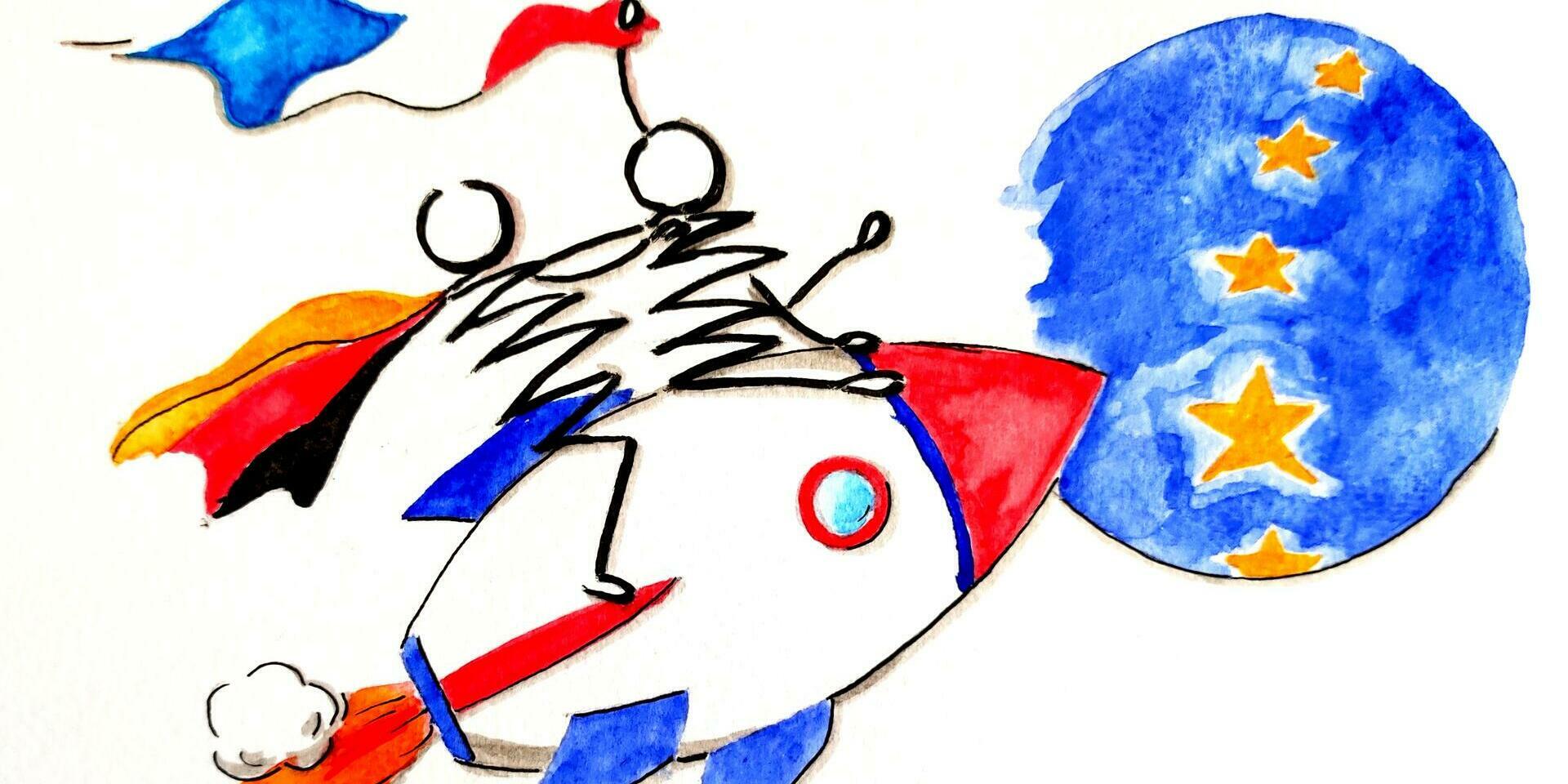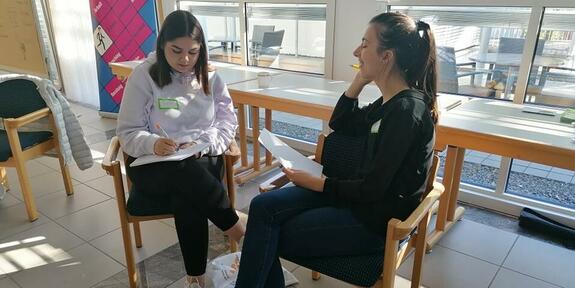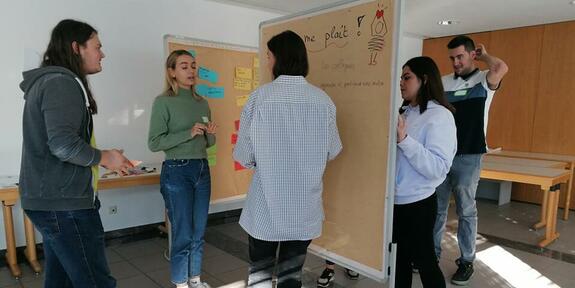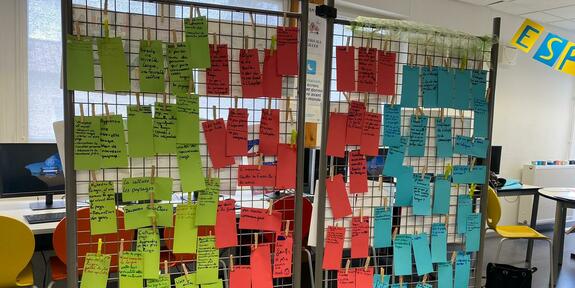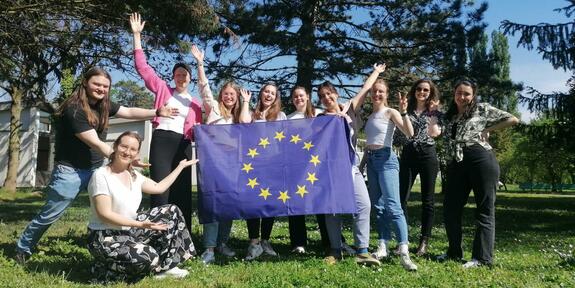Regio Lab
After the long pandemic phase and in light of the current economic and social challenges, new impulses for cross-border mobility of young people in vocational education and training are needed in the Upper Rhine region. The project "Regio Lab - for cross-border mobility in vocational (education) training and career guidance for young people in the Upper Rhine", supported by the DFJW, pursues a multidimensional initiative that encourages young people to venture professional experiences on the other side of the border to strengthen the cross-border mobility on the labor market in the medium term.
Immersion in Germany or France in the context of cross-border training is an experience that can sometimes bring unexpected obstacles. To overcome them, there are many ways to inform oneself, to get advice from experts, to improve one's language skills before leaving... but there are few moments when you can share your experiences and impressions with other learners. The guidance offered contributes to the smooth running of the cross-border training.
In this project, we want to improve the situation of young people by offering pedagogical solutions in the areas of awareness, preparation, accompaniment and appreciation of cross-border mobility.

Experience abroad? Of course! - Workshops on the Upper Rhine
This project will conduct awareness-raising workshops for school and out-of-school institutions in which young adults will use a peer-to-peer approach to introduce peers to the opportunities of cross-border mobility and cross-border educational pathways.
The goal is to reduce fears and barriers to mobility, demonstrate the benefits of the cross-border labor market, and ultimately encourage young people to gain experience on the other side of the border.
To implement the program, we will offer annual training for 10 multipliers starting in 2023, who will then report on their experiences abroad in schools and extracurricular institutions.
Regio Lab Ambassadors - we are looking for you!
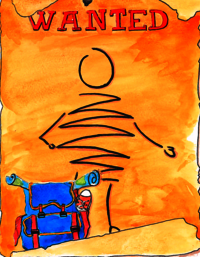
Every year, young adults from Germany and France meet to motivate other young people in the sense of peer group education to think critically and constructively about the opportunities and advantages of a stay abroad, but also about the resulting problems, obstacles and fears. They are trained by the European Academy Otzenhausen to become Regio Lab Ambassadors. They acquire skills to pass on their own experiences, well-founded information about European integration, as well as different possibilities for stays abroad.
Call for applications: Workshop leaders for school workshops within the Regio Lab project 2023 (in german)
Our offers for cross-border trainees
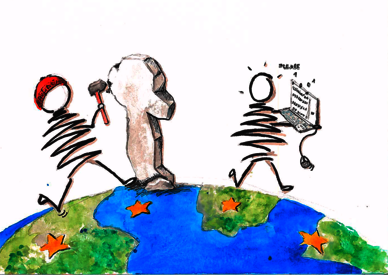
Start workshops for cross-border trainees
The start-up workshop for cross-border trainees is the first part of the cycle of intercultural accompaniment of trainees and is addressed to all those who start the first year of cross-border training or dual studies.
The objectives of the meeting are to connect the cross-border trainees with each other, to help them with administrative procedures and to introduce them to the different actors that provide financial and logistical support to the trainees during their training. Two two-day start workshops per year are devised and organized by the European Academy Otzenhausen (EAO).
Intercultural weekend for cross-border trainees
The intercultural weekend is the 2nd part of the cycle of intercultural accompaniment for trainees. It takes place at the end of the training year and is addressed to the DFJW scholarship holders who are currently doing a cross-border training or dual studies in the Upper Rhine or in the Greater Region. Participation in the weekend validates the scholarship.
The goals of the encounter include networking of cross-border trainees, reflection on the opportunities and challenges of cross-border training, appreciation of intercultural skills, and reflection on career prospects after training. The intercultural weekend takes place once a year in spring.
Alumni Network
In order to promote interprofessional and Franco-German group dynamics, a network of active and former cross-border trainees is being established. Beyond the creation of an address book, a leisure or cultural excursion will be offered once a year to strengthen the contact between the trainees.
The aim of this measure is to strengthen the contact between active and former cross-border trainees and to build up a new network. Especially through the mediation of contacts between former and active trainees, the entry into the cross-border training and the resulting sometimes arduous circumstances of a cross-border activity should be facilitated. Alumni can become contact persons / speakers / multipliers and thus motivate others for cross-border mobility and create positive dynamics.
